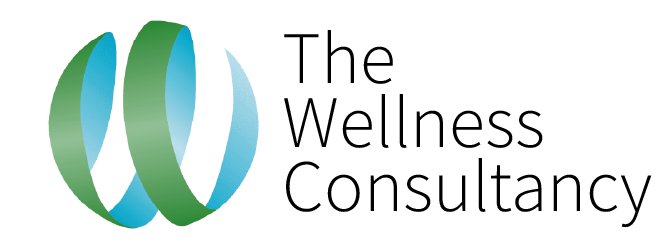Clare Wilson, from the ‘New Scientist’, questioned whether the coronavirus could lead on to development of PVFS. Harvey Moldovsky, from the University of Toronto, believes that COVID-19 will lead to many cases of Post-Infective Fatigue Syndrome, and this is supported by Simon Wesseley, former president of the Royal College of Psychiatrists. There is a concern that worrying evidence suggests COVID-19 may leave behind debilitating conditions ranging from, sensory loss, to heart and lung damage in addition to psychological and neurological complications.
It is known that some viral diseases can directly affect the brain and result in mood disorders or cognitive impairment. Symptoms such as irrational fears are typically associated with an anxiety disorder, and depression can also occur if the viral infection results in being housebound and spending more time in bed.
A 2013 Danish study showed people with a severe infection were 62% more likely to suffer from mood disorders. Healthy people usually get over a cold in 7 to 10 days. Flu symptoms, including a fever should go away after approximately 5 days, but a cough and general weakness may take a few days longer. COVID-19 symptoms include a high temperature, a new persistent cough, shortness of breath and possible muscular pain and sore throat.
Despite recovering from COVID-19, Post-Viral Fatigue can present as tiredness and weakness that lingers on after they have fought off the infection. Other symptoms include, sleep problems, muscle and joint pain, headaches, sore throat, poor concentration, poor memory, dizziness, nausea and heart palpitations. These can increase during elevated exercise, and can vary day to day.
Treatment includes analgesia, antiemetics, medications for insomnia and poor concentration and Cognitive Behavioural Therapy (CBT) for mental health conditions.
Lifestyle Changes
Recommended diet and supplements
Healthy balanced diet including vegetables, carbohydrates, protein, calcium, vitamins and minerals. Micronutrients include, vegetables, mushrooms and fruit, and macronutrients include proteins and fats obtained through meats and cheese.
A person with PVFS may need help to go shopping and prepare meals. They should use any support that is available.
Nausea
Eat starchy foods in small amounts, for example, toast. Eat little and often, sip drinks slowly. Barley sugar and ginger biscuits or lemon and ginger tea can assist nausea. If the condition persists, contact GP for advice and possible medication. Keep hydrated!
Cognitive Behavioural Therapy (“CBT”)
CBT is a talking therapy that can help an individual to manage Post-Viral Fatigue by changing the way they think and behave. It is most commonly used for anxiety and depression and can be used for other physical and mental health problems.
CBT is based on the concept that your thoughts, feelings, physical sensations and actions are interconnected and that negative thoughts and feelings can trap you in a vicious cycle. This therapy can help you to accept your diagnosis, feel more in control of your symptoms, challenge feelings that could prevent your symptoms from improving, and gain a better understanding of how your behaviour can affect the condition
Exercise
This should always be gentle and built up gradually, as over-exercising can result in the symptoms of PVFS worse.
Sleep, Rest & Relaxation
Problems getting to sleep, unrefreshing or restless sleep, needing excessive amounts of sleep, sleeping during the day and awake at night can affect your recovery from PVS.
Relaxation and breathing techniques, and good sleep hygiene can be beneficial. For example, reduce late night television consumption, avoid working until you are unable to shut off and minimise the use of mobile phones and personal electronics prior to going to bed. Recommendations also include avoiding caffeine and foods containing sugar before getting into a bed that is comfortable and safe. Listen to quiet music until you drop off and use warm wheat bags to put behind your neck and back to relieve tension in the muscles.
There are a variety of complimentary medications which are available from any health and supplement store; discuss with you pharmacist as to what would be most beneficial for your personal needs.
Try to pace and balance rest and activity. Use a calendar or organiser to assist with creating a routine, and this can also support concentration and memory issues. Think about activities and people in two ways – what sustains and what drains you.
Whatever your routine is, listen to your body and try to stay positive!!
Note: There is little to no evidence to support any particular recommendations. It is worth trying a few things and create a routine that is suitable for your needs.
Setbacks and Relapses
This can be due to infection and unplanned activity. Sometimes, there is no clear cause. If medical symptoms appear, then consult your GP. Check what your activity level is like, and possibly take more breaks and increase relaxation over exercise.
Everyone is different and recover at different rates, so be kind to yourself and optimistic about your recovery from Post-Viral Fatigue Syndrome. A helpful therapeutic approach that supports recovery is called the compassionate mind. It encourages us to have a kinder and more gentle relationship with ourselves and our body. It links into mindfulness and meditation to support us working with our body to recover, rather than pushing or battling it.
Helpful Links
How we can help ourselves with self-compassion
Pacing and planning
https://www.getselfhelp.co.uk/docs/PACE.pdf
Identifying nourishing and draining activities
https://www.getselfhelp.co.uk/energisingdraining.htm
Coping with fatigue
Amanda Lloyd
Occupational Health Nurse and Counsellor

